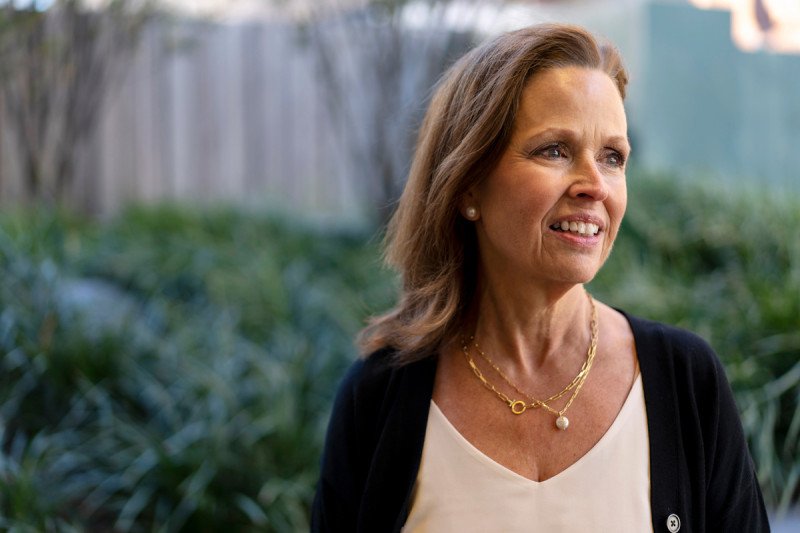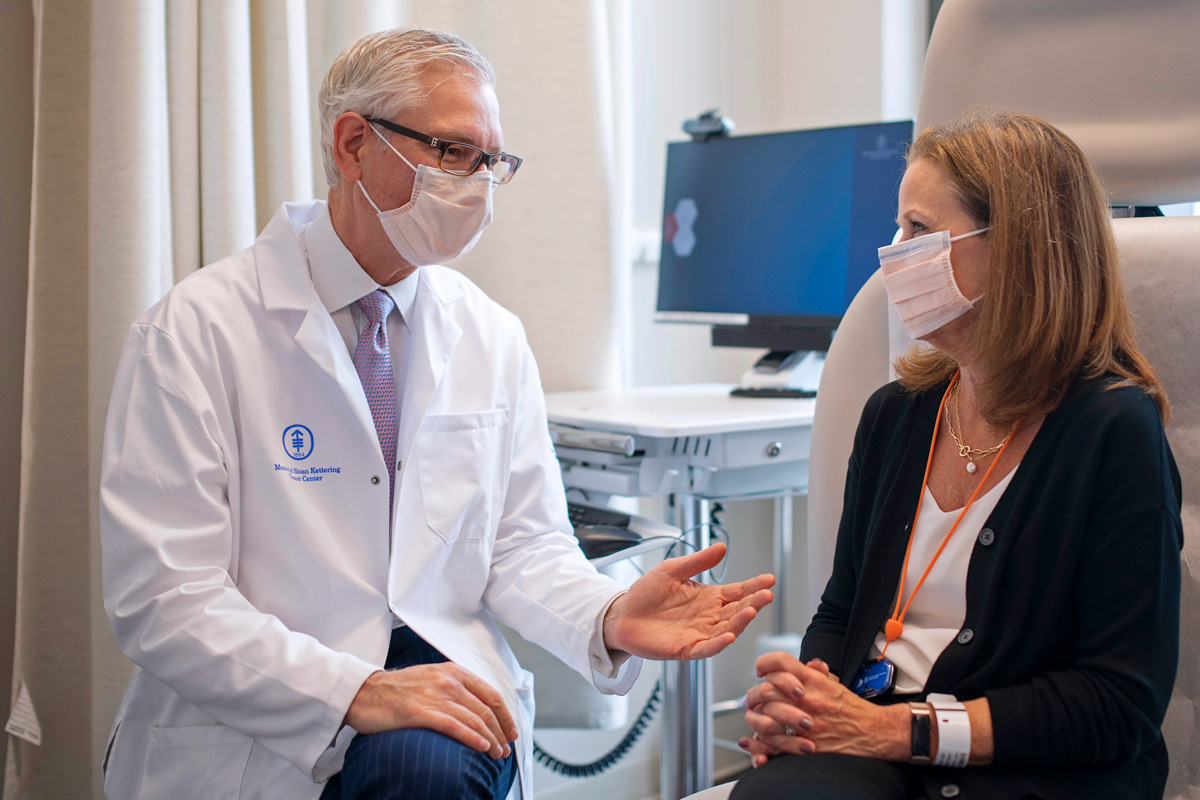
Sandra Lowe’s lung cancer diagnosis came out of nowhere. She was 63, healthy and living an active life near Albany, New York, working full-time at a credit union, hiking the Adirondack Mountains with her husband, and visiting her two sons in Boston.
When a routine physical exam showed high cholesterol, her doctor ordered a CT scan of her heart to check for coronary disease. The next day, he notified her that the test had detected a nodule on the upper lobe of her left lung. A follow-up PET scan strongly suggested stage 1 lung cancer.
“It came as quite a shock to me,” Sandra says. “I had no symptoms, and I’ve never smoked in my life. I exercise every day, and I eat healthy foods.” While her father had died of lung cancer, he had been a smoker on and off for many years, so she hadn’t been concerned about her own risk.
Getting a second opinion at Memorial Sloan Kettering Cancer Center (MSKCC) made a big difference in how she was treated. When she met with a surgeon at a local hospital, his description of the procedure using the standard operation sounded daunting.
“He was explaining that it would involve a large incision in my chest and require an epidural and three days in intensive care,” she says. “I had never had surgery before, and it was just very overwhelming.”
Sandra described the surgery to her lifelong friend, Ceil, who urged her to get a second opinion from MSK thoracic surgeon David Jones. Ceil had gone through lung cancer herself several years earlier and was treated by Dr. Jones.
“Ceil told me, ‘Please, please, talk to Dr. Jones. Even if you don’t go to him, would you just call, or do a telemedicine appointment?’ ” Sandra recalls.

A Less-Invasive Alternative
Sandra and her husband had a telemedicine appointment with Dr. Jones in March 2021. They immediately felt reassured, especially when he said he’d be able to do a minimally invasive procedure called video-assisted thoracic surgery (VATS).
Surgery for Stage 4 Lung Cancer? It’s Possible
With VATS, a surgeon makes a few small incisions to insert a telescope camera and specialized instruments to operate on the lung and chest without spreading or breaking the ribs. Using VATS usually results in less pain, faster recovery, and fewer complications. It also enables patients who may need further treatment, such as chemotherapy or radiation therapy, to start it sooner.
“He was fully versed on my case, and when he said he could do the VATS, I changed my mind on a dime,” Sandra says. “He asked me if I wanted to think about it, and I said, ‘No, whenever you can schedule it, I’ll be there.’ After that appointment, it was the first night I slept in two weeks. My diagnosis hadn’t changed, but he was so comforting and reassuring that I felt much better about the whole process.”
“At MSK, we do more than 90% of lung cancer surgeries for early-stage disease using minimally invasive approaches such as VATS and robotic-assisted surgery,” Dr. Jones says. “We also use minimally invasive methods to perform more complicated surgeries. We helped pioneer these techniques, and we are one of the busiest centers for these types of surgeries worldwide.”
Making the three-hour drive to MSK — even during the COVID pandemic — was worth it, Sandra says. “Everybody put me at ease, including the nurses, the respiratory therapist, and the anesthesiologist,” she says. “The day of my operation, I was more relaxed than I expected I’d be, considering I had never had surgery before.”
The surgery required just three small incisions. To confirm that the nodule was indeed cancer, Dr. Jones first did a VATS wedge resection, which involves removing the tumor and a small bit of surrounding lung. After a pathologist confirmed the cancer, Dr. Jones completed the operation by removing the upper lobe of the left lung, as well as lymph nodes in the chest in case any cancer cells had spread.
Rapid Recovery
When Sandra awoke, she needed minimal pain medication after the operation. Dr. Jones checked in on her two or three times a day.
“I was probably walking 20 laps a day around the unit,” she says. “I came home on a Wednesday, and by Monday I was out walking the neighborhood again. I was back to my normal three miles within a couple of weeks.”
A follow-up appointment two weeks later — and another one six months after that — confirmed that she was healing properly and that the cancer was gone. Dr. Jones decided no further treatment, such as chemotherapy, was needed. Sandra will have CT scans every six months to assess for recurrence of her cancer and to identify if a new lung cancer develops.
MSK does a genomic analysis of all lung cancers, even early-stage tumors, Dr. Jones explains. Sandra’s tumor had an EGFR mutation for which there is a targeted therapy available — a pill called osimertinib (Tagrisso®) that can help treat her tumor if it were to ever come back.
“We see this mutation particularly in women who are light or never smokers like Sandra,” Dr. Jones says. “Fortunately, for stage 1 disease she does not need additional therapy at this time. By knowing more about her tumor today, we are prepared to treat her tomorrow if that need ever arises.”
More than three years after her surgery, Sandra continues to enjoy her energetic lifestyle, working, hiking with her husband, baking, and entertaining friends. She is now part of MSK’s Adult Survivorship Program, which helps people move forward after completing treatment while carefully monitoring their disease.
In addition Sandra has welcomed the birth of two new granddaughters, Addison and Avarie.
“I feel so blessed that my cancer was discovered early and I’m able to enjoy this phase of my life,” she says.
For anyone else facing possible lung cancer surgery, Sandra echoes the advice of her friend.
“I would say the same thing Ceil said to me: ‘Before you make any decision, I’d like you to talk to Dr. Jones,’ ” she says. “I would definitely tell them about the VATS surgical approach and wouldn’t think twice about recommending MSK — from Dr. Jones to the anesthesiologist to the nurses, and respiratory therapists. I got wonderful care.”





